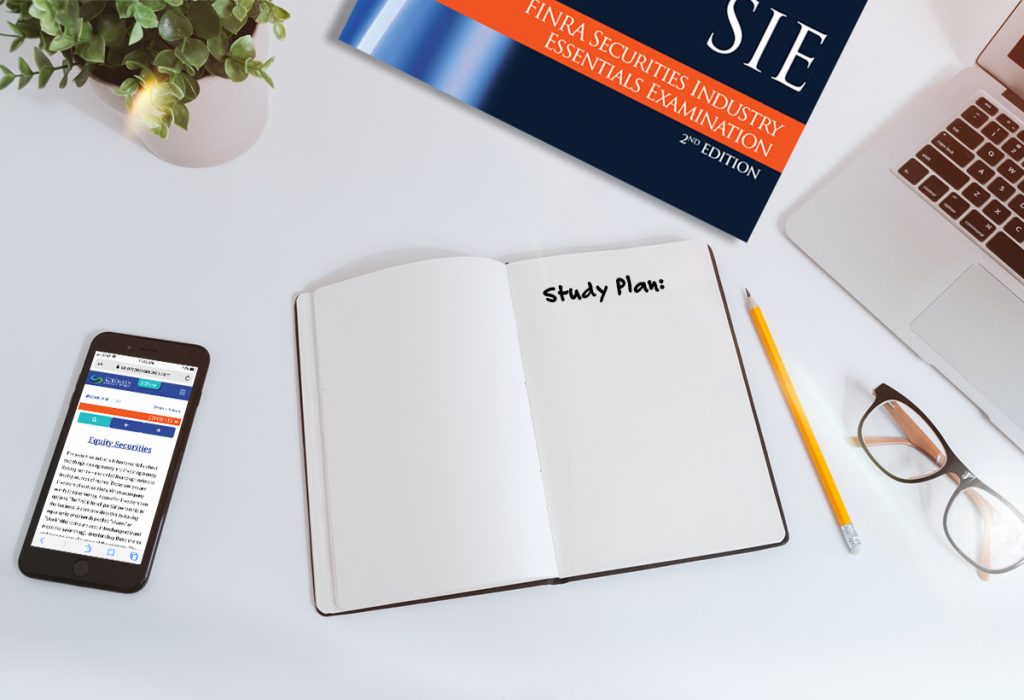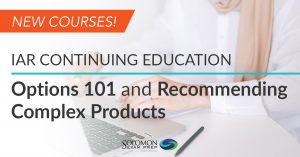
Studying for a knowledge test, like a securities licensing exam, requires significant effort over time. Solomon offers some helpful tips for studying and passing your securities licensing exam(s).
Updated June 23, 2022
Study Strategies for People with ADHD
It’s no small feat to study for and pass a securities licensing exam, especially if you have ADHD. Two areas that can be especially challenging for people with ADHD are time management skills and study skills. Time management can be difficult because it requires a person to prioritize tasks, organize their day, and plan for short- and long-term goals, all of which are potential stumbling blocks for those with ADHD. And when it comes to studying, people with ADHD often have trouble concentrating and haven’t acquired effective study habits.
However, studies suggest that people can learn specific behaviors and strategies that help them work around ADHD symptoms and succeed in their studies. With that in mind, Solomon has compiled a list of skill-based strategies to support ADHD learners through the process of studying for their securities licensing exams.
Time Management
If you’re planning to study for a securities licensing exam, such as the Securities Industry Essentials (SIE) exam or the Series 7 or the Series 65, managing your time effectively is crucial. Depending on the exam, Solomon Exam Prep recommends studying for between 30 to 100 hours over the course of ten days to several weeks. It’s a daunting prospect for anyone. How can someone with ADHD get better at managing his or her time?
Use schedules and planners to stay on track.
Whether you use a paper or digital planner, the following tips will help you use it to your advantage:
-
- Refer to the Solomon Exam Prep study schedules located in the resources folder of your online Solomon account to help create an effective study plan.
- Fill in your planner with study targets for each week and smaller goals for each day. People with ADHD often get overwhelmed when confronted with a large task, so breaking the task up into smaller pieces will make it more approachable.
- Be realistic about how long things take for you and build in some breathing room for when things takes longer than expected. Also build in time for frequent short study breaks.
- Begin the day by checking your planner to see which activities you need to do. Try to complete each day’s to-do list, but don’t panic if you don’t finish everything – you built in extra time, remember?
Build structure into your day with consistent routines and rituals.
-
- Figure out your best time for study. Are you more alert in the morning, afternoon, or evening? Try to study at your optimal time as much as possible.
- Use alarm clocks, timers, and alerts to help you structure your time, build routine, and remind yourself of important tasks. While your phone can be a source of distraction, this article has a great list of apps for time management.
- Give yourself small rewards as you study and complete tasks. This article recommends people with ADHD improve their focus by routinely rewarding themselves for achieving small goals. A reward can be as simple as taking a 10–15 minute break to have a snack or take a walk around the block. This also helps prevent fatigue and loss of concentration.
Study Skills
Studying for a securities licensing exam can make you feel like you’ve landed back in high school or college, when you were forced to study and retain large amounts of information with the end goal of passing a test. If you were a successful student, the strategies that worked for you then will probably work for you now. But individuals without prior academic success, and those with ADHD, can increase the effectiveness of their study time by applying the strategies that follow.
Make note-taking a core aspect of your studying.
Studies suggest that becoming a better note-taker can increase concentration and help learners make better use of their time by learning actively rather than passively. Here are some specific ways to boost your studying with note-taking:
-
- If you have a hardcopy of your Solomon Exam Prep Study Guide, then highlight, underline, and write notes and questions in the margins as you read. If you’re reading your Study Guide online or listening to your Audiobook, take notes on paper using a note-taking system that works for you, such as the Cornell, outlining, or mapping method, all described here.
- Use color-coding to organize your notes. Invest in colored pens, highlighters, and sticky notes and use them strategically.
- Return to your notes frequently: review them several times; rewrite them; read them aloud; create possible test questions from them.
Do A LOT of self-testing.
Studies have found that incorporating more self-testing, or retrieval practice, into a study routine can significantly improve retention of material, especially for people with ADHD. The Solomon Exam Prep study system has two features specifically designed for self-testing:
-
- Solomon Exam Prep Online Exam Simulator: with a large question bank and tools that help you identify areas that require more study, the Solomon Exam Simulator is the perfect way to incorporate self-testing into your study time.
- Solomon Exam Prep Digital Flashcards: interactive true/false and definitions flashcards that can be organized by chapter and customized to target the terms and concepts you need to study more.
Teach the content to someone else.
To be well-prepared for a securities licensing exam, candidates must truly understand the content. What better way to check your understanding than to teach the content to another person? Becoming the teacher to a friend or family member is a highly effective learning technique. This list of study tips for learners with ADHD includes talking about the concepts aloud to yourself or others.
Even if you don’t have a study buddy or captive family member to lecture to, imagine that you’re teaching a course on the material and write up a lesson plan. Deliver your lesson to an empty room if need be, but the act of trying to explain the material out loud is a great way to confirm which areas you have a strong command of and which you need to study further.



